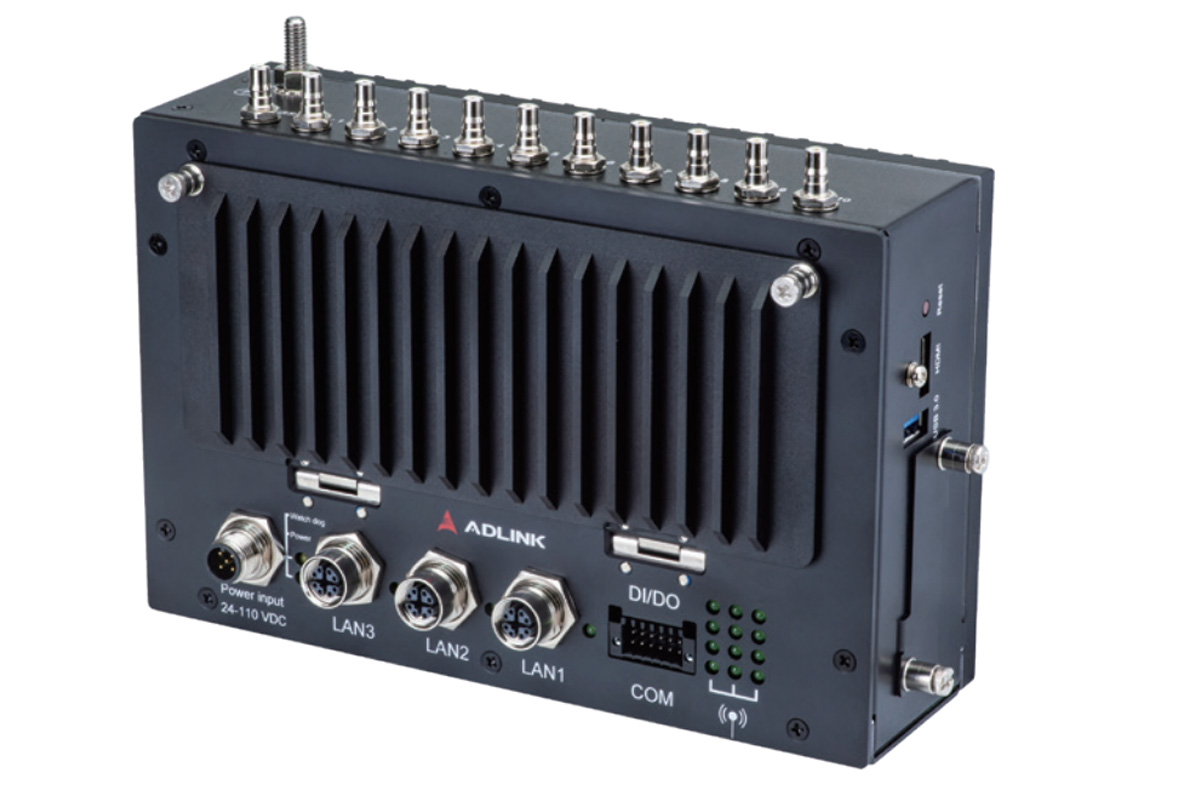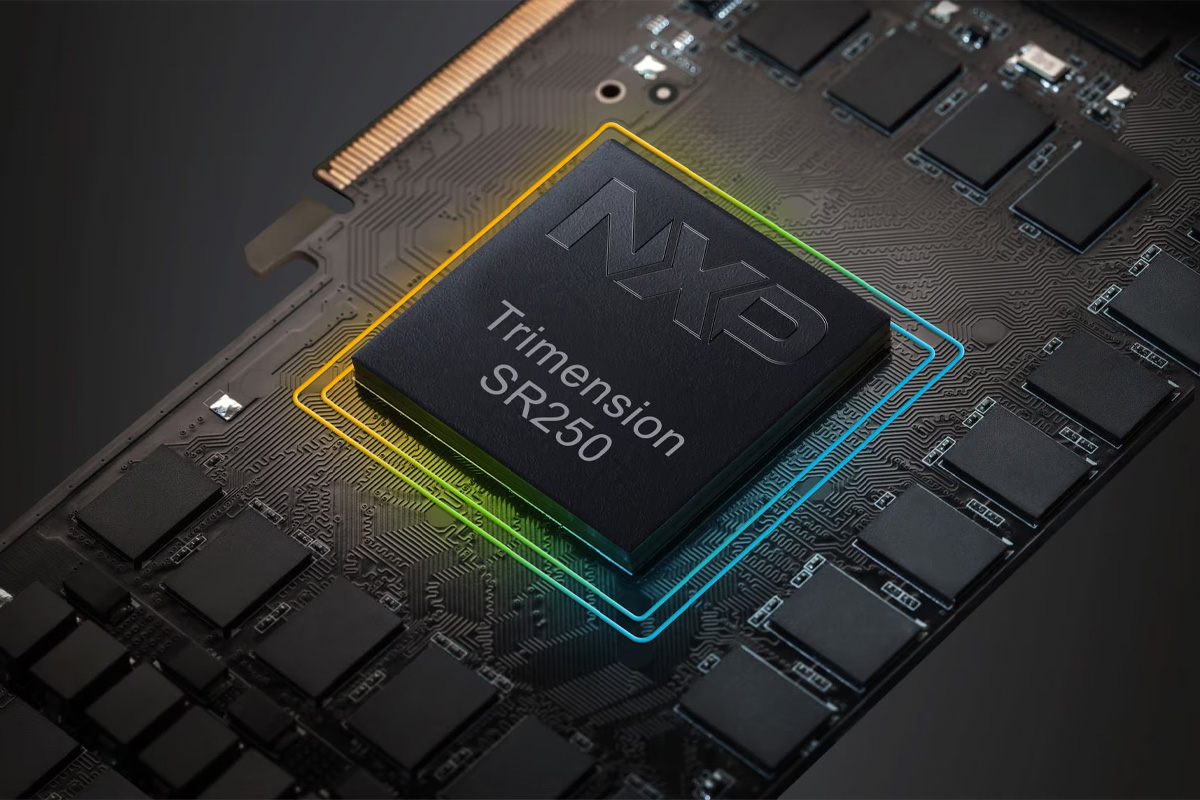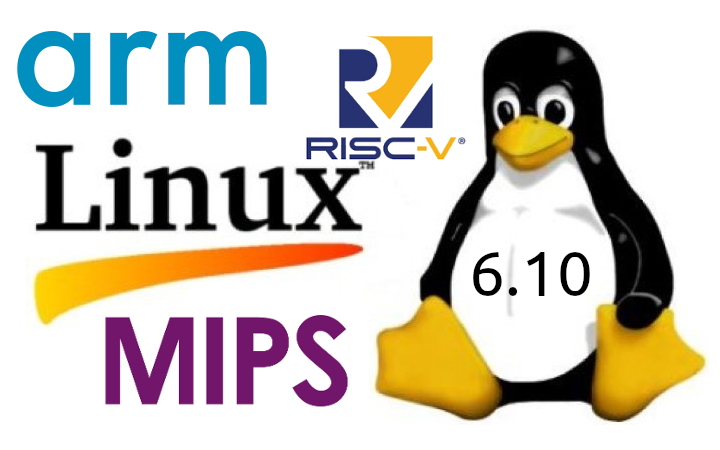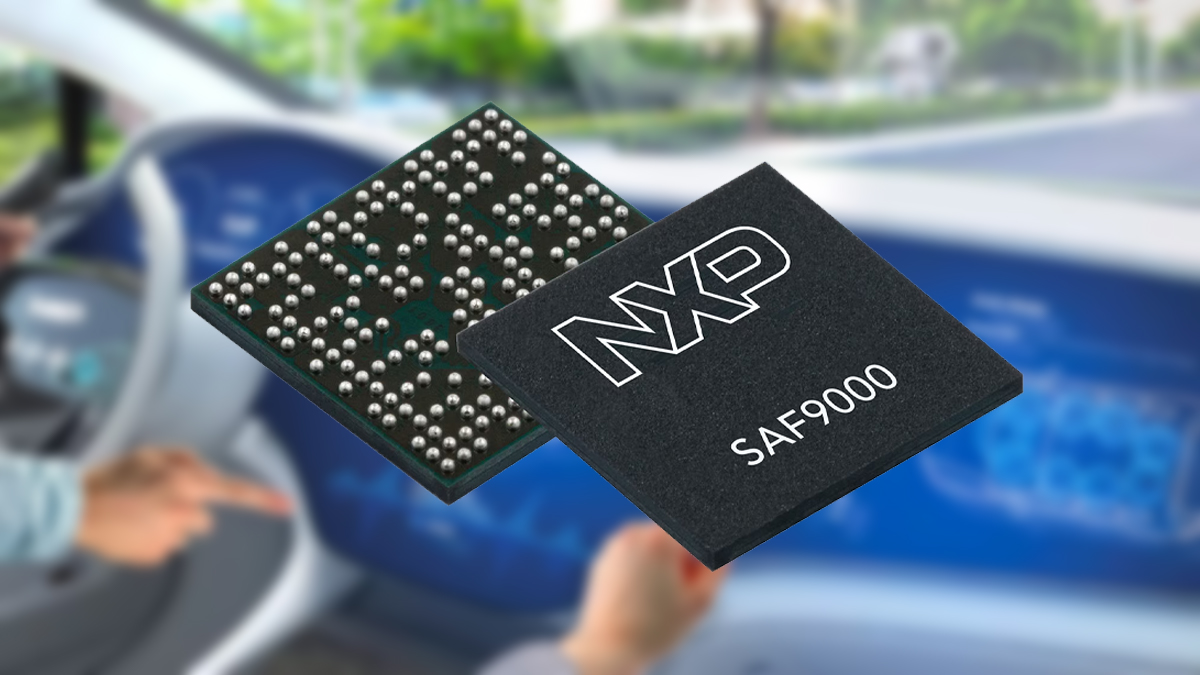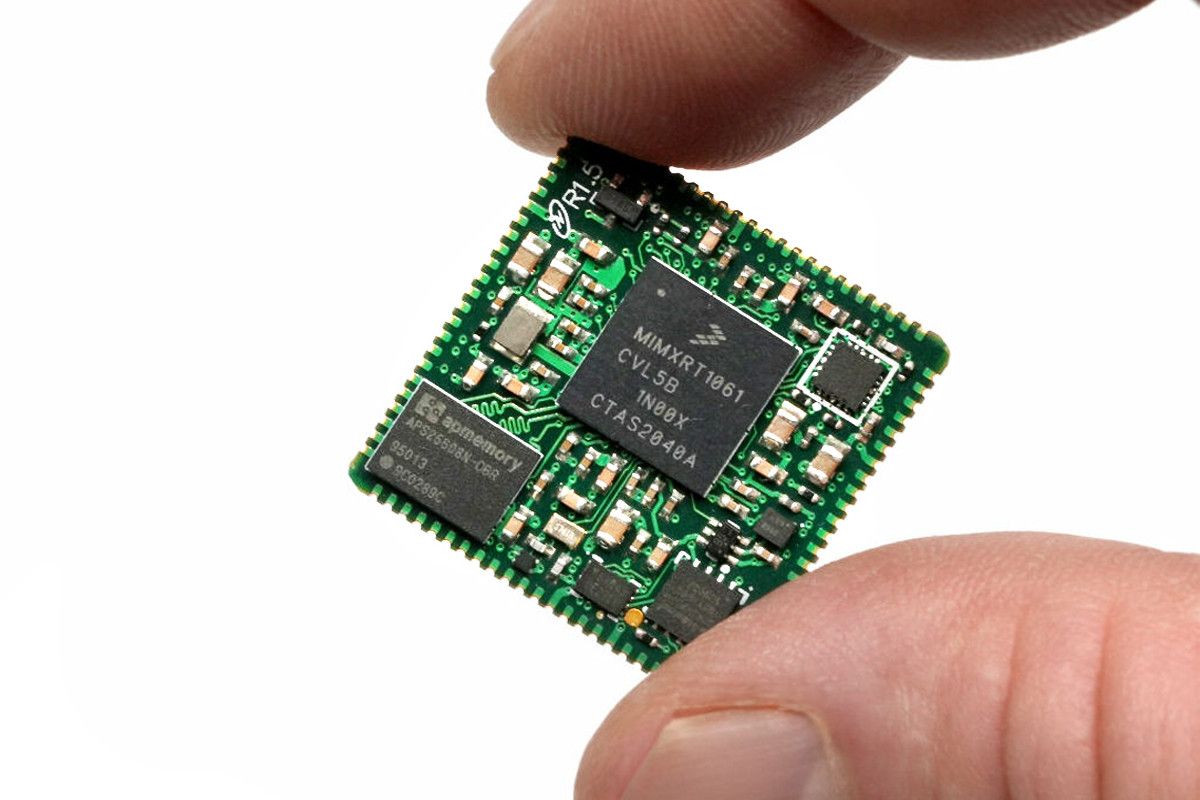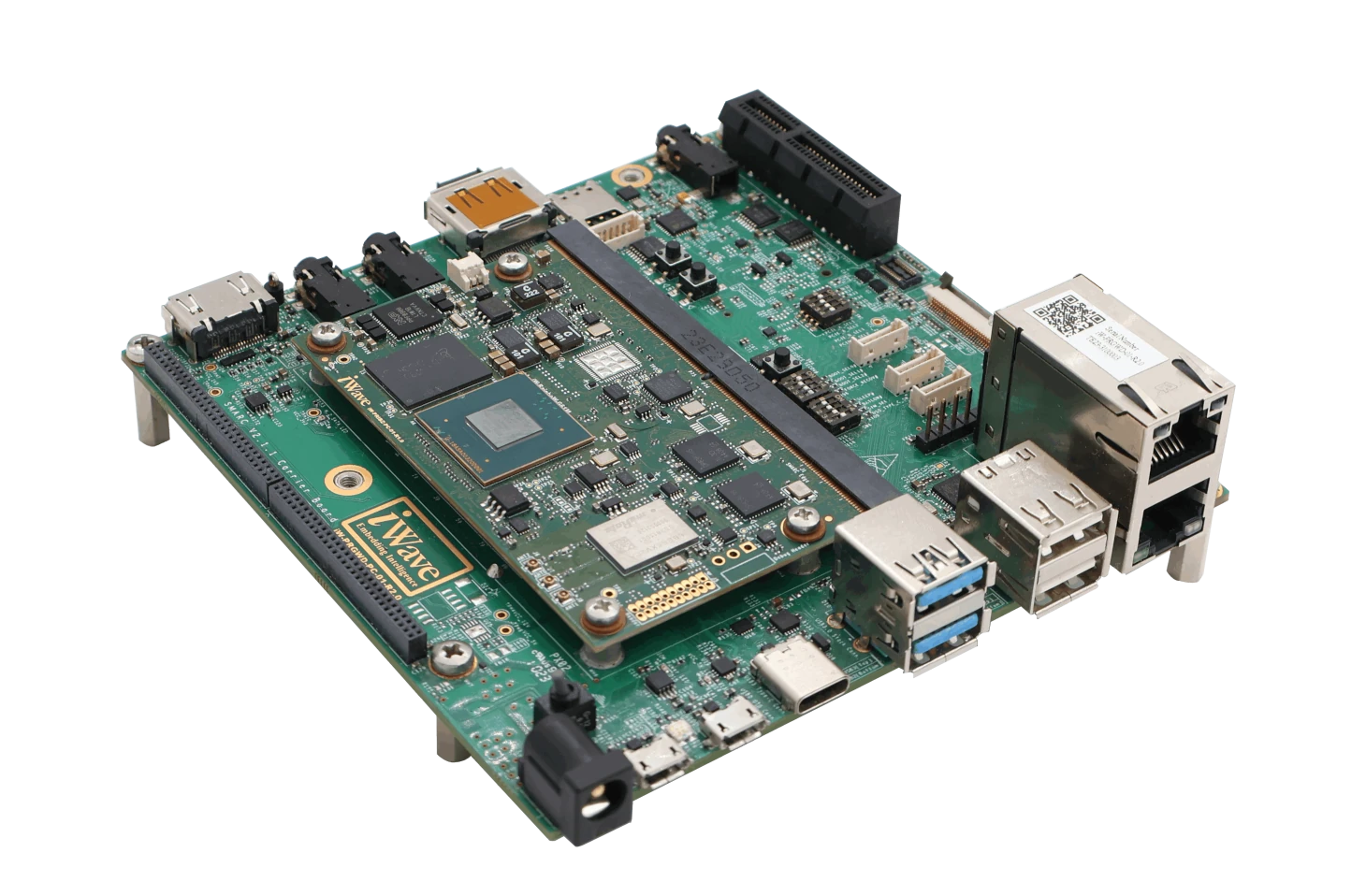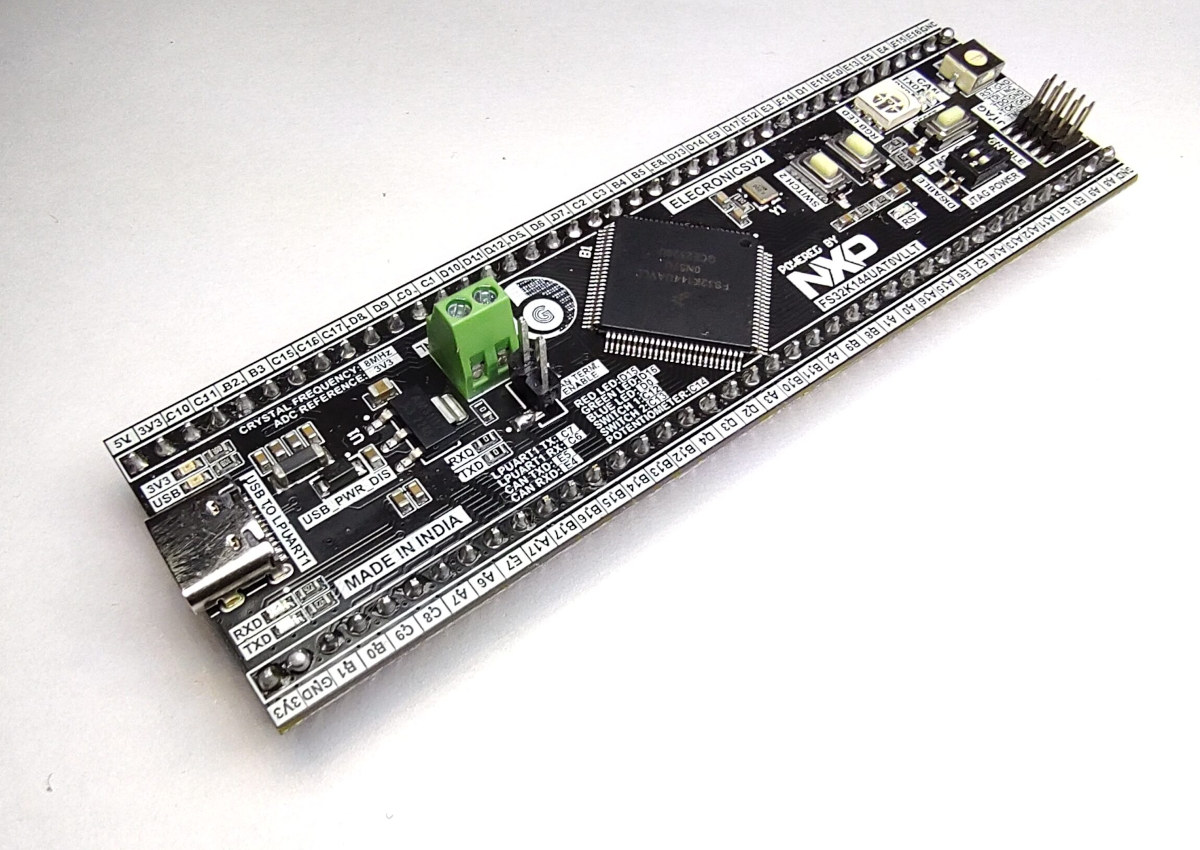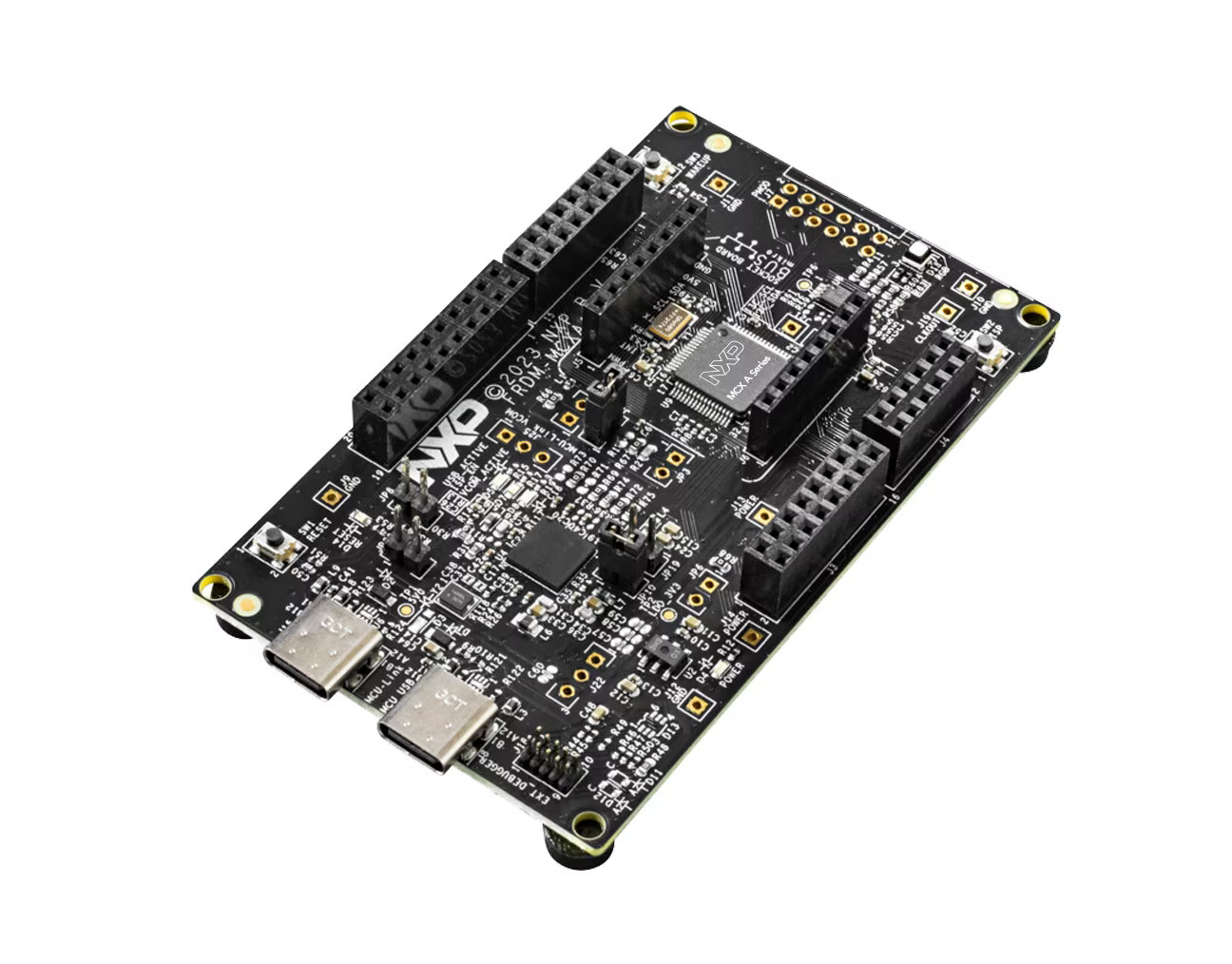The ADLINK AVA-1000 T2G gateway is a rugged, EN50155-compliant T2G (Train-to-Ground) gateway designed for railway and industrial environments. Powered by a choice of NXP i.MX8M Plus Quad Cortex-A53 processor or an Intel Processor N50 Alder Lake-N processor. The i.MX8M Plus model is equipped with up to 8GB LPDDR4 and a 64GB eMMC flash whereas the Alder Lake variant features up to 4GB LPDDR5 memory and a 32GB eMMC flash. In terms of connectivity, the gateway features three M12 GbE ports and supports a wide range of options including 5G, WiFi 6, and GNSS. The AVA-1000 T2G gateway’s fanless design, wide operating temperature range, and 24-110V DC input ensure reliable operation in industrial environments. Additionally, its compliance with EN50155 and other industrial standards makes it ideal for various industrial applications. AVA-1000 T2G gateway specifications System Processor (multiple options) NXP i.MX8M Plus quad-core Cortex-A53 processor @ up to 1.8 GHz with Cortex-M7 […]
NXP Trimension SR250 short-range UWB radar supports secure ranging for Smart Homes and Industrial IoT
NXP Semiconductors has recently introduced Trimension SR250 UWB radar, which NXP is calling the industry’s first single-chip solution that combines on-chip processing with short-range ultra-wideband (UWB) radar and secure UWB ranging. Operating at 6-8.5 GHz, the SR250 supports features like 3D angle-of-arrival (AoA), time difference of arrival (TDOA), and time of flight (ToF) measurements accurate to within ±5 cm. The integrated on-chip radar processing reduces power consumption, which increases efficiency and it can work with AI/ML algorithms on host processors like NXP’s i.MX, RW61x, and MCX families. The SR250 is supported by firmware, middleware, and sample applications, simplifying development and deployment. Applications for this device include smart home automation (e.g., turning devices on/off based on presence), secure access, and safety monitoring, as well as industrial uses such as worker tracking, collision avoidance, and danger zone detection. Trimension SR250 UWB radar specification 3D secure ranging Fully interoperable with IEEE 802.15.4z HRP […]
Linux 6.10 Release – Notable changes, Arm, RISC-V, and MIPS architectures
Linux Torvalds has announced the release of Linux 6.10 on LKML: So the final week was perhaps not quote as quiet as the preceding ones, which I don’t love – but it also wasn’t noisy enough to warrant an extra rc. And much of the noise this last week was bcachefs again (with netfs a close second), so it was all pretty compartmentalized. In fact, about a third of the patch for the last week was filesystem-related (there were also some btrfs latency fixes and other noise), which is unusual, but none of it looks particularly scary. Another third was drivers, and the rest is “random”. Anyway, this obviously means that the merge window for 6.11 opens up tomorrow. Let’s see how that goes, with much of Europe probably making ready for summer vacation. And the shortlog below is – as always – just the last week, not some kind […]
NXP SAF9000 and SAF9100 Automotive Audio DSP bring AI to car infotainment
NXP has recently launched the SAF9xxx Automotive Audio DSP family, which currently includes SAF9000 and SAF9100 AI audio DSPs. Built around Cadence’s latest generation high-performance Tensilica HiFi 5 DSPs, these new chips not only feature AI and ML capabilities, but also include features like driver’s voice pitches and accent recognition, noise cancellation, voice recognition, emergency siren detection, and more. Additionally, the SAF9000 chip includes a software-defined radio option with up to five integrated tuners (controlled by an integrated Arm Cortex-M7 core) that covers all major global broadcast radio standards, including DAB, HD Radio, DRM, CDR, and AM/FM into a single chip solution. SAF9xxx Automotive Audio DSP specifications DSP – Tensilica HiFi 5 DSPs with dedicated neural network engines Integrated Controller – Arm Cortex-M7 core for tuner and audio control middleware Radio Features (SAF9000 only) Supports AM, FM, DAB, DAB+, DMB, HD Radio, DRM for AM, DRM for FM (DRM+), CDR […]
NetBurner SOMRT1061 – A stamp-sized dual Ethernet SoM powered by NXP’s i.MX RT1061 crossover processor
The NetBurner SOMRT1061 is a System-on-Module (SoM) that comes in a very compact stamp-sized footprint that measures just 25.4mm x 25.4mm, yet boasts a rugged design and 67 usable GPIO pins with edge connectors. These features make this SoM ideal for a wide range of medical, industrial, and robotics applications. The SoM is built around the NXP’s i.MX RT1061 Arm Cortex M7 SoC, and features 1MB of internal SRAM, 32MB of external RAM, and 8MB of flash storage. It also features dual 10/100M Ethernet with PTP, an on-die temperature sensor, three FlexIO modules, two USB OTG 2.0 controllers, I2C, SPI, ADC, SD Card, CAN, UART, and many more. NetBurner SOMRT1061 System-on-Module (SOM) Specifications SoC – NXP i.MX RT1061 Arm Cortex-M7 @ 528MHz. Memory 1MB SRAM on the processor 32MB of external RAM Storage Flash – 1MB boot, 8MB application SDHC – Flash card interface Ethernet Up to two 10/100 Ethernet […]
NXP i.MX 95 SMARC 2.1 system-on-modules – ADLINK LEC-IMX95 and iWave iW-RainboW-G61M
Several companies have unveiled SMARC 2.1 compliant system-on-modules powered by the NXP i.MX 95 AI SoC, and today we’ll look at the ADLINK LEC-IMX95 and iWave Systems iW-RainboW-G61M and related development/evaluation kits. The NXP i.MX 95 SoC was first unveiled at CES 2023 with up to six Cortex-A55 application cores, a Cortex-M33 real-time core, and a low-power Cortex-M7 core, as well as an eIQ Neutron NPU for machine learning applications. Since then a few companies have unveiled evaluation kits and system-on-modules such as the Toradex Titan evaluation kit or the Variscite DART-MX95 SoM, but none of those were compliant with a SoM standard, but at least two SMARC 2.1 system-on-modules equipped with the NXP i.MX 95 processor have been introduced. ADLINK LEC-IMX95 Specifications: SoC – NXP i.MX 95 CPU Up to 6x Arm Cortex-A55 application cores clocked at 2.0 GHz with 32K I-cache and D-cache, 64KB L2 cache, and 512KB […]
ElectronicsV2 – An NXP S32K144 development board for DIY automotive projects
ElectronicsV2 is a small development board based on the NXP S32K144 Arm Cortex-M4F microcontroller designed for automotive enthusiasts and tech hobbyists who may be interested in DIY projects such as an electric immobilizer, a CAN-based data logger, or experiment with vehicle-to-vehicle (V2V) communication Gettobyte aims to make the ElectronicsV2 the “Arduino of the Automotive World” with affordable pricing, plenty of I/Os, a 2-pole terminal block connected to a CAN transceiver, LED and buttons, and easy-to-follow documentation and tutorials. ElectroncisV2 specifications: MCU – NXP 32K144 32-bit Arm Cortex-M4F microcontroller @ up to 112 MHz with 512KB flash, 64KB SRAM, 3x FlexCAN interfaces in LFQP100 package CAN Bus – 2-pole terminal block connected to TJA105 CAN transceiver USB – 1x USB-C port for power and serial console Expansion – 2x 40-pin GPIO headers with CAN Bus, LPUART, ADC, LPSPI, FlexIO, EWM, LPI2C, TRGMUX Debugging Onboard UART for debugging via USB Type-C cable […]
NXP launches MCX A14x and MCX A15x Arm Cortex-M33 MCUs along with FRDM-MCXA153 development board
NXP has just announced the launch of the MCX A series Arm Cortex-M33 microcontrollers with the MCX A14x running up to 48 MHz and the MCX A15x running up to 96 MHz. The devices support up to 128KB flash and 32KB SRAM, offer I2C, I3C, and SPI sensor interfaces, and integrate support for BLDC/PMSM motor control. NXP first unveiled the NXP MCX general-purpose Arm MCU family with 30 times faster machine learning at Embedded World 2022, but at the time we had limited information although four series were planned with the MCX N Advanced series up to 250 MHz, the MCX A essential series up to 96 MHz, the MCX W Wireless series with Bluetooth LE, and the MCX L Low-power series. The MCX A series has just been launched, and the high-end MCX N also has its own product page with the N94x and N54x variants. We’ll focus on […]


